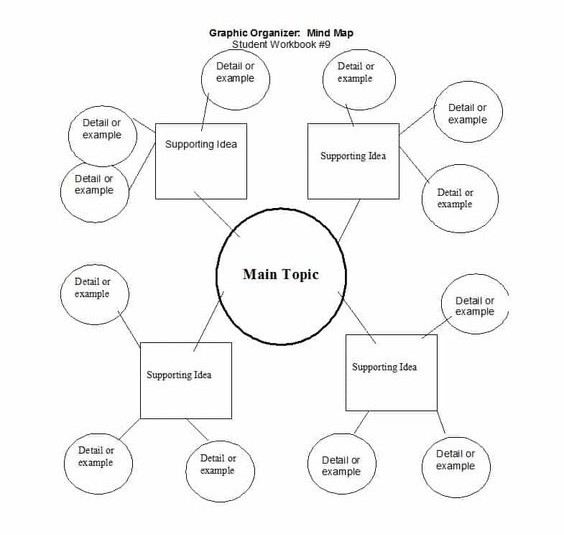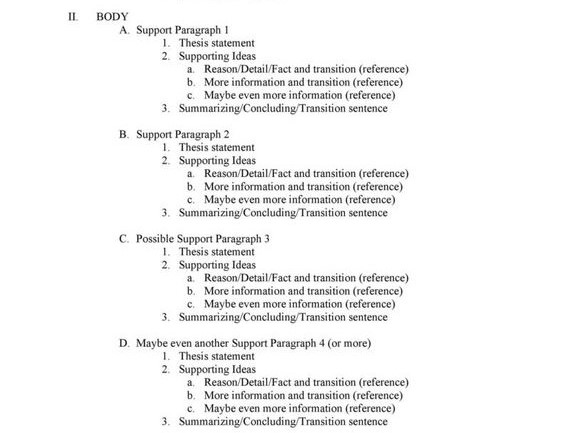
Table of Contents
The nursing profession demands more than just clinical skills; it requires critical thinking, empathy, and a deep understanding of human needs. These qualities are often reflected in nursing essays, which can be daunting tasks for even the most dedicated students. Fear not! The key to writing a compelling nursing essay lies in a robust brainstorming process.
Nursing essay brainstorming is not simply about jotting down random ideas. Instead, it is a structured approach to generating, organizing, and refining your thoughts to create a well-crafted and impactful essay. This guide will offer you the tools and techniques to transform your initial thoughts into a powerful nursing essay.
Steps to Nursing Essay Brainstorming
1. Start with the Prompt
Every essay has a specific prompt or question. Understanding the prompt is the foundation of successful nursing essay brainstorming. Before you start brainstorming, dissect the prompt and highlight key terms, concepts, and instructions. Ask yourself the following questions to understand the prompt.
· What is the essay’s main focus?
· What specific aspects of the topic should be addressed?
· What is the desired outcome or argument?
For example, if the prompt asks “Discuss the ethical implications of using restraints in a geriatric population,” your nursing essay brainstorming should focus on generating ideas related to ethics, restraints, and geriatric care.
Here is an example of a typical prompt for a nursing essay:

2. Engage Your Knowledge Base
Drawing on your existing knowledge is crucial for nursing essay brainstorming. Revisit your course materials, readings, and clinical experiences. Reviewing educational platforms such as Google Scholar and phdnursewriter can also provide useful insights, with samples of nursing essays on a wide range of topics.
· Identify relevant theories, concepts, and principles: How do these connect to the prompt?
· Recall specific examples from your studies or practice: Could these illustrate your points?
· Consider personal experiences: Have you encountered situations related to the prompt?
Drawing upon this existing knowledge will enable you to build a solid foundation for your content of the essay.
3. Unleash the Power of Questioning:
Nursing essay brainstorming thrives on questioning. After analyzing the prompt and engaging your knowledge base, you should delve deeper with questions. The following questions can help you to put things into perspective.
· What are the different perspectives on this issue?
· What are the potential benefits and drawbacks of the argument?
· What are the ethical considerations surrounding this topic?
· What are the social, cultural, or economic implications of the issue?
· How can this issue be addressed effectively?
The more questions you ask, the more ideas you will uncover, and the more insightful your essay will be.
4. Employ Visual Aids
Visual aids can be powerful tools for nursing essay brainstorming. Mind maps, concept maps, and even simple lists can help you visualize connections between different ideas.
· Mind maps: Start with the prompt in the center and branch out with related concepts, arguments, and examples.

· Concept maps: Use a visual representation to show relationships between concepts and ideas.
· Lists: Create separate lists for potential arguments, supporting evidence, and counterarguments.
These visual aids can help you organize your thoughts and identify key themes and connections.
5. Seek Diverse Perspectives
Collaborating with others is a valuable aspect of nursing essay brainstorming. So, engage in discussions with your peers, professors, or mentors.

· Share your ideas and get feedback: What are their perspectives on your topic?
· Ask for help in identifying gaps in your knowledge: Are there important considerations you’ve missed?
· Brainstorm together: Generate ideas collectively and explore various angles.
Incorporating diverse perspectives will enable you to broaden your understanding of the issue and strengthen the depth and complexity of your essay.
6. Embrace the Unexpected
Nursing essay brainstorming is a process of exploration and discovery. Be open to unexpected ideas and insights.
· Don’t dismiss seemingly irrelevant ideas: They might lead to valuable connections and insights.
· Allow yourself to think creatively and make connections between seemingly unrelated concepts.
· Don’t be afraid to challenge conventional thinking: Bring a fresh perspective to the topic.
Embracing the unexpected will keep your nursing essay brainstorming dynamic and innovative.
7. Structure Your Thoughts
Once you have generated a wealth of ideas, it’s time to structure them into a coherent framework. While there are various approaches to structuring your thoughts, the following guidelines can make the process simpler and easier.
· Identify the main argument or thesis statement: What is the central point you want to convey?
· Organize your supporting points into logical paragraphs: Each paragraph should focus on a single idea and provide evidence to support your argument.
· Consider the flow and coherence of your essay: Does the structure logically lead your reader through your argument?
Structuring your thoughts will enable you to develop a clear and compelling narrative that effectively communicates your message.
8. Refine and Polish
The final step in nursing essay brainstorming is to refine and polish your ideas.
· Review your brainstorming materials: Identify your strongest arguments and most compelling evidence.
· Evaluate the clarity and logic of your ideas: Does your essay make sense and flow smoothly?
· Eliminate any unnecessary or repetitive information: Focus on delivering your message concisely and effectively.
Refining and polishing ensures that your essay is clear, concise, and impactful.
Example: Nursing Essay Brainstorming for “Discuss the Ethical Implications of Using Restraints in a Geriatric Population”
Prompt Analysis:
· Focus: Ethical implications of restraint use in geriatric patients.
· Key terms: Restraints, geriatric population, ethics.
· Outcome: Discuss ethical considerations and potential consequences of using restraints.
Knowledge Base:
· Ethical principles: Autonomy, beneficence, non-maleficence, justice.
· Geriatric considerations: Frailty, cognitive impairment, risk of falls.
· Restraint types: Physical restraints, chemical restraints.
· Alternatives to restraints: Environmental modifications, caregiver support.
Questioning:
· What are the ethical arguments for and against restraint use?
· How does restraint use impact patient autonomy and dignity?
· Are there alternative strategies that can effectively address safety concerns without compromising patient rights?
· What are the potential consequences of restraint use on patient physical and mental well-being?
Visual Aids:
· Mind map: Centered on “Ethical Implications of Restraints,” with branches for autonomy, beneficence, non-maleficence, justice, and alternative strategies.
· List: Potential arguments for and against restraint use, supporting evidence from research or clinical experience, counterarguments to address opposing viewpoints.
Diverse Perspectives:
· Discuss with peers: Share insights on ethical dilemmas and potential solutions.
· Seek advice from professors or mentors: Gain expert perspectives on the topic.
Unexpected Ideas:
· Consider the role of cultural and social factors in restraint use.
· Explore the impact of restraint use on family members and caregivers.
Structure:

· Thesis statement: While restraints may be necessary in some situations, ethical considerations require careful evaluation of alternatives and a patient-centered approach.
· Paragraph 1: Discuss ethical principles and their application to restraint use.
· Paragraph 2: Examine the risks and consequences of restraint use for geriatric patients.
· Paragraph 3: Explore alternative strategies to minimize the need for restraints.
· Paragraph 4: Discuss the importance of patient autonomy and informed consent in restraint decisions.
Refine and Polish:
· Review your ideas and select the strongest arguments.
· Ensure your essay is well-structured and flows smoothly.
· Eliminate redundancy and unnecessary information.
Following the steps discussed above will enable you to engage in effective nursing essay brainstorming. They provide perspectives that will allow you to unlock your potential and create a compelling and insightful essay that showcases your understanding of the nursing profession’s ethical and practical challenges.
Contrary to what some learners may think, nursing essay brainstorming is not a one-time event. It’s an ongoing process of refinement and development. Through persistent effort and critical reflection, you’ll be able to craft essays that demonstrate your knowledge, empathy, and commitment to the nursing profession.
The Common Types of Nursing Essays
Now that you know how the steps to nursing essay brainstorming, it is also important to understand where and how to apply that knowledge. The following are the common types of nursing essays that you can expect.
Personal Essays:
- Personal Statement: This is the most common type of nursing essay, often required for college applications and nursing school admissions. It allows you to share your personal story, motivations for pursuing nursing, and relevant experiences that have shaped your desire to become a nurse.
- Statement of Purpose: Similar to a personal statement, this essay focuses on your career goals and how nursing aligns with your aspirations. You can describe your future plans, specialization interests, and what you hope to achieve as a nurse.
- Reflection Essay: This essay requires you to reflect on a significant personal or professional experience and analyze its impact on your nursing journey. It demonstrates your self-awareness, critical thinking, and ability to learn from past experiences.
Academic Essays:
- Critical Analysis Essay: This essay involves analyzing a nursing concept, theory, or research article. You will need to critically evaluate the information, identify strengths and weaknesses, and formulate your own opinion.
- Case Study Analysis: This type of essay requires you to analyze a specific patient case, applying your knowledge of nursing principles to diagnose the problem, develop a care plan, and evaluate the outcome.
- Literature Review: This essay involves reviewing and summarizing existing research on a specific nursing topic. You will need to synthesize the findings, identify gaps in knowledge, and propose potential future research directions.
- Ethical Dilemma Essay: This essay explores a complex ethical situation faced in nursing practice. You will need to analyze the ethical principles involved, weigh the different perspectives, and propose a justified course of action.
- Research Essay: This essay requires you to conduct original research on a nursing topic, collect and analyze data, and present your findings in a structured format.
Other Types:
- Career Goals Essay: This essay focuses on your long-term career aspirations and how a nursing degree will help you achieve them.
- Diversity Statement: This essay allows you to discuss your background, experiences with diversity, and how you can contribute to a diverse and inclusive nursing community.
- Leadership Essay: This essay requires you to demonstrate your leadership qualities, experiences, and how you would contribute to the nursing profession as a leader.
Get Professional Nursing Essay Brainstorming Help
This guide offers useful insights for nursing essay brainstorming. However, it is still very easy to feel lost in the maze of ideas. Sometimes, you might even start to feel like you do not have what it takes to craft an impactful nursing essay. At nursingpapers.us, we provide customized nursing essay brainstorming help to enable you to overcome the stress of essay writing. Get in touch with us for exceptional nursing essay writing services.







